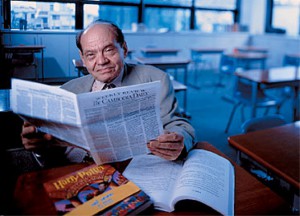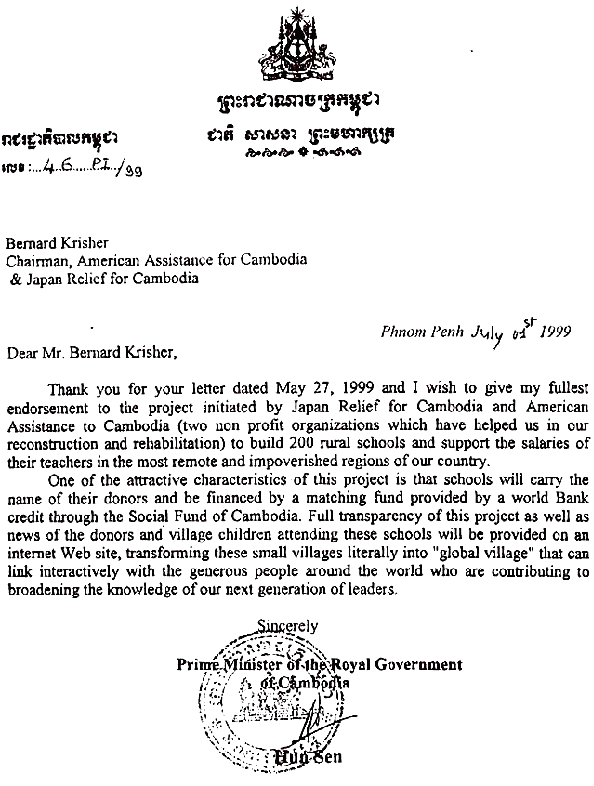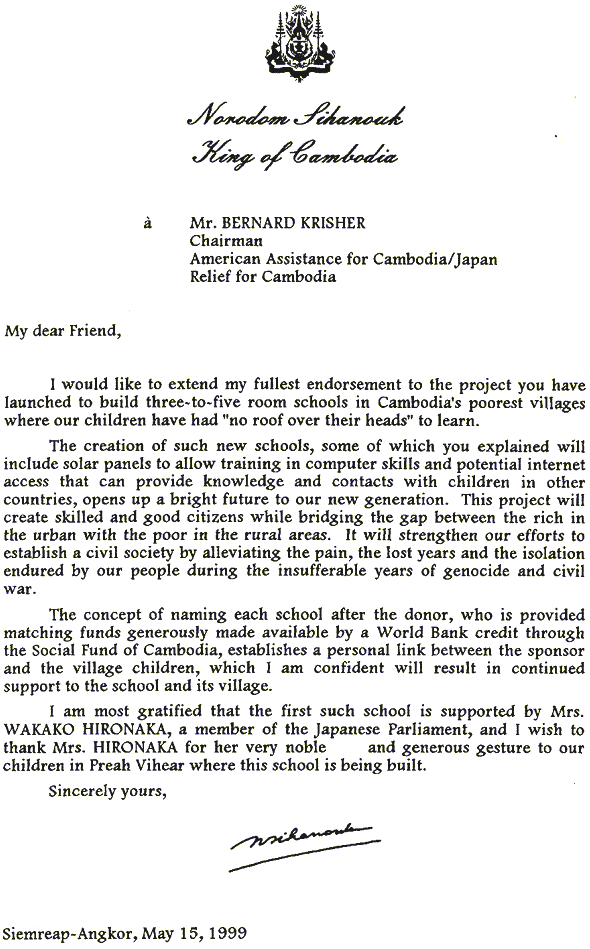Organization
World Assistance for Cambodia (WAfC) / Japan Relief for Cambodia (JRfC) are independent nonprofit organizations dedicated to providing opportunities for the youth and rural poor in Cambodia. World Assistance for Cambodia is registered in the United States as a 501(c) (3) tax-deductible nonprofit organization.
Mission
World Assistance for Cambodia (WAfC)/ Japan Relief for Cambodia (JRfC) is an independent, nonprofit organization dedicated to improving opportunities for the youth and rural poor in Cambodia. WAfC/JRfC operates interlinked programs across Cambodia in the areas of education, health, rural development, and technology.
Background
The American journalist and long time resident of Japan, Bernard Krisher, established Japan Relief for Cambodia in 1993 to galvanize support to help rehabilitate Cambodia, devastated by 20 years of civil war. In 1998 he founded American Assistance for Cambodia, a US tax-exempt 501(c)(3) organization, to support his humanitarian projects in Cambodia. In 2012, American Assistance for Cambodia changed its name to World Assistance for Cambodia to appropriately reflect its global support. Our programs are operated in Cambodia by World Assistance for Cambodia/Japan Relief for Cambodia, a non-governmental organization recognized by the government of Cambodia.

I covered Cambodia for Newsweek in 1964 and am also a survivor of the Nazi Holocaust in Germany where six million Jews perished. Because Cambodia was completely devastated by the Khmer Rouge, I decided to put all my effort to help the Cambodians recover and reconstruct their country through education and providing health services to the poor. The United States also inflicted great pain on Cambodia by bombing and killing its population to wage the Vietnam War. As an American, I felt it my duty to compensate the Cambodians for the damage my country inflicted on them. King Norodom Sihanouk was gratified with my contribution to his country and has continuously praised the hospital, Sihanouk Hosptial Center of Hope and the more than 500 rural schools that we helped to build. – Bernard Krisher, June 2012.




